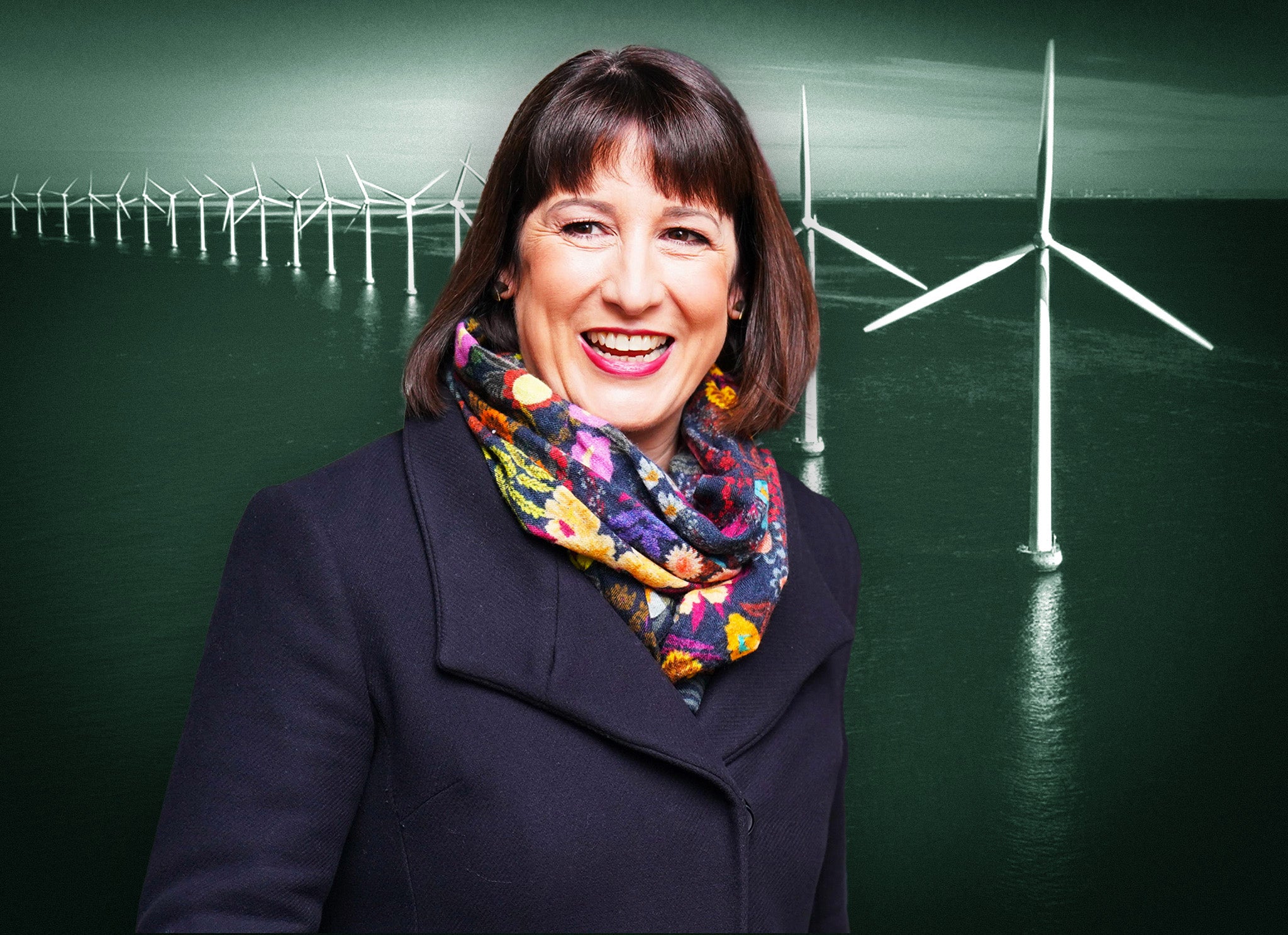Labour’s green handbrake turn gives it a roadmap to No 10
Even if it goes against political creed and credentials, there is sense to changing course if the result is a surer route to power

The key to winning power is to be trusted fiscally. Given the party’s electoral history, it is no bad thing for a Labour shadow chancellor to err on the side of prudence – to show that they can look after the nation’s pounds and pennies, even if it means delaying lofty green promises.
Rachel Reeves is the first figure in her party to display such flinty resolve since the heyday of Gordon Brown before the 1997 election. On the BBC’s Today programme this morning, she abandoned her policy of using big borrowing to fund green investment.
Critics have lambasted this abrupt U-turn, accusing Her Majesty’s Opposition of lily-livered political jiggery-pokery at a time of global peril, but in fact it makes sense if Labour is to lead. Even if it goes against Ms Reeves’s political creed and credentials, there is sense to changing course if the result is a surer route to No 10.
Like her predecessor, Ms Reeves revels in “iron-clad” fiscal rules. She has launched a “smoked salmon” charm offensive on business and the City (it was prawn cocktail in Mr Brown’s time), and she has recently taken the overdue step of policing the tendency of her frontbench colleagues to commit, casually, to spending billions of pounds of public money during the course of a short interview on the Laura Kuenssberg show.
Until now, Sir Keir Starmer and his colleagues have displayed suspiciously cakeist tendencies in evading the question of the day: will the Labour leader put the planet or public finances first? “Green growth” is the answer to every dilemma, a sort of organic magic money tree set alongside a pair of fiscally high-yielding shrubs – namely the windfall tax on the energy companies and ending non-dom status for the super-rich.
It was argued that Labour could spend £28bn each and every year – presumably on top of existing Tory plans and other Labour pledges – on an almost self-financing basis, because investing in green growth is presumed to deliver higher tax revenues. That’s a trebling of the existing national budget for the environment.
When she unveiled her green growth plan in 2021, Ms Reeves insisted that the £140bn to be spent over five years of a Labour government was indeed all “investment”. One of her fiscal rules is that borrowing to invest is always a good thing.
The “good jobs in the green industries of the future” were to be in giga-factories to build batteries for electric vehicles; a thriving hydrogen industry; the expansion of offshore wind, with turbines made in Britain; planting trees and building flood defences; keeping homes warm and getting energy bills down – good new jobs in communities throughout Britain. All paid for without any immediate recourse to the taxpayer, and all unequivocally defined to provide a financial return as well as helping to reach net zero targets.
But environmental uplift does not show up in the national income accounts, and thus is no help in persuading the markets to finance the UK’s ballooning budget deficit, or in convincing the Bank of England to keep interest rates down.
So now, with the responsibility of high office and the success of the next Labour government in mind, Ms Reeves has decided to change her mind and to concentrate the minds of her more ambitious colleagues. Notably, that includes the shadow climate change secretary, Ed Miliband. It is a U-turn – conveniently but unconvincingly blamed on Liz Truss’s disastrous mini-Budget last autumn – but a relatively minor, shallow one, and, with luck and good judgement, it will not harm the overall effect of the policy. It’s a trim rather than a cut.
The goal is now to scale up spending to reach the £28bn-a-year level around the middle of the parliamentary term. A still more welcome move would be for Ms Reeves to differentiate between the parts of the green growth plan that really can lift growth and reduce energy bills, such as investing in zero-carbon energy generation, and those that have a much less certain economic yield, such as insisting that jobs in manufacturing are created in the UK – a stipulation that may well make little economic sense, and is frankly protectionist.
Britain cannot realistically compete with the huge green subsidies being offered to companies by the US and the EU, let alone China. Some modest concessions to help the UK survive the subsidy war, such as the ones Rishi Sunak just negotiated with Joe Biden, are the best that can be hoped for. Ms Reeves seems to realise this, even if she’s not yet ready to tell her party.
If the money is spent right, saving the planet doesn’t necessarily have to mean breaking the public finances. A steely-eyed and robust government-in-waiting can see the need to get real.
Join our commenting forum
Join thought-provoking conversations, follow other Independent readers and see their replies
Comments


Bookmark popover
Removed from bookmarks